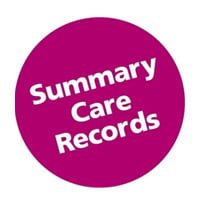SCR uploads and viewings hit record high
- 16 December 2013

Nineteen clinical commissioning groups have hit a 100% upload rate for Summary Care Records.
Viewings of the records also reached a high in December of 12,000 a week.
The SCR is a summary of patient information pulled from GP records, including allergies, adverse reactions and medications, which is made available to clinicians in emergency and out-of-hours care.
Around 11m records have been created in 2013, bringing the total number to more than 32m, or 55% of the population.
An SCR update says that more than half of GP practices are creating SCRs and “the challenge for 2014 is to increase this number.
“We are optimistic that this will be made easier following the inclusion of SCR in the new GP contract,” it says.
The new contract means that GP practices will be required to provide an automated upload of their summary information to the SCR, or have published plans in place to achieve this, by 31 March 2015.
"The requirement will be on the basis of the current definition of the SCR. Additional information can only be uploaded with explicit patient consent and should be information required to support patient care in an emergency or urgent situation," the contract website says.
While creation of the records surged ahead, use of them by clinicians had been lagging behind.
However, the update reports that 428 sites now have viewing capability and the number of records being viewed has risen to an all-time high of 12,000 a week. This figure is more than three times higher than it was at the start of the year.
Acute hospital pharmacy staff are the most avid viewers, but the records are also being used in urgent care, minor injury units, walk-in centres, out of hours, NHS 111 and prisons.
An evaluation conducted over 12 weekends by pharmacists at the medical admissions unit at North Tyneside General Hospital found that of 480 new patients who were assessed, the SCR was used in 146 instances.
Of these instances, more than 60% resulted in an intervention that was a direct result of having access to the SCR.
There were 294 interventions in total, 28 of which involved critical medicines and in 48 of the interventions the patients potentially could have come to harm, had the intervention not been made, the SCR report says.
This year also finally saw the completion of the SCR public information programme. This country-wide mailing campaign informed people about their right to decide whether they had one or not and resulted in 1.4% of people opting out.




